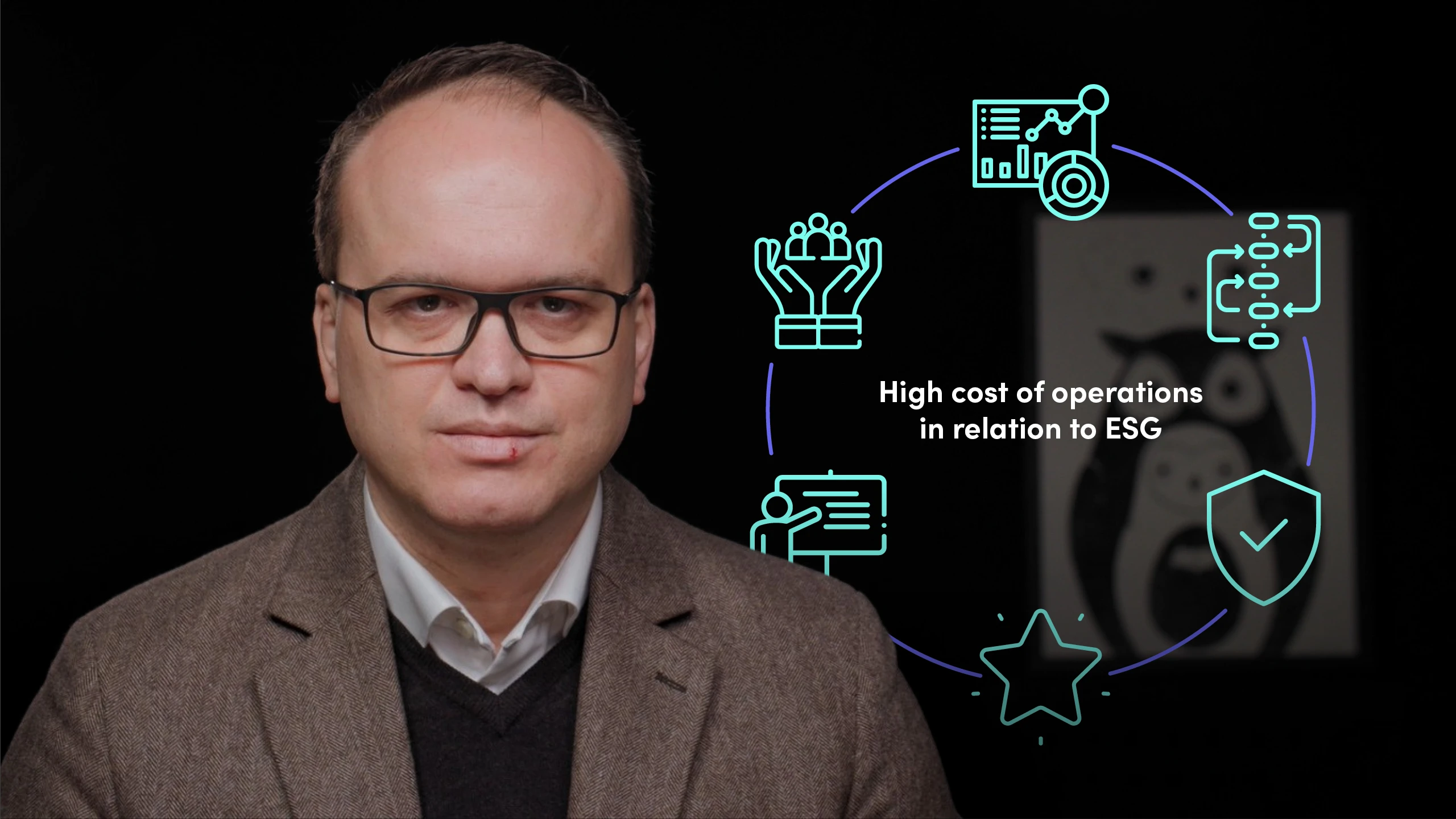
Limitations of ESG Integration

Alex Struc
20 years: Asset management
In the second video in this two-part series, Alex highlights some of the challenges businesses face when implementing ESG considerations into their decision-making processes.
In the second video in this two-part series, Alex highlights some of the challenges businesses face when implementing ESG considerations into their decision-making processes.

Limitations of ESG Integration
8 mins 1 sec
Key learning objectives:
Identify the challenges businesses might face when implementing ESG considerations into their decisions
Overview:
ESG integration, or an evaluation of the investee's business's environmental, social, and governance aspects to assess potential risks and opportunities, is the practice whereby the financial analysis is complemented by evaluation of off-balance-sheet items, which affect companies’ operations and business model.
What are some of the challenges businesses might face when implementing ESG considerations into their decisions?
- Organisational structure can be cumbersome and inflexible Investors’ demand for ESG solutions is not a demand for a better version of the same product - it is a need for meaning - a specific request to combine their financial performance with creating impact at scale. Established firms can be too fragmented and inflexible to accommodate this because their focus on execution of legacy products has been highly profitable.
- Challenging consensus can be risky People’s innate risk aversion to incurring losses is the main reason why ESG integration may fall short of one’s expectations to make an impact. Embracing consensus precludes most firms from going deeper than reactive product offerings to meaningfully alter investment processes and develop truly innovative solutions for clients.
- High cost of operations An inconvenient truth of ESG integration is that it is expensive for managers to implement. New data, process design and implementation, compliance, talent acquisition, training, and retention are additional items, which are expensive, but investment managers must facilitate.
- Agency issues in financial markets Due to the complexity of financial markets, there is a considerable distance between capital allocation and the end client, that distance is filled with intermediaries. Fusing ESG issues into the historically prioritised risk-return considerations can be difficult for investment managers, wealth managers, and financial advisors alike. The ability to think in first principles is a luxury of start-ups – this facilitates innovation and provides a welcome environment for new wave of asset allocators.

Alex Struc
There are no available Videos from "Alex Struc"

